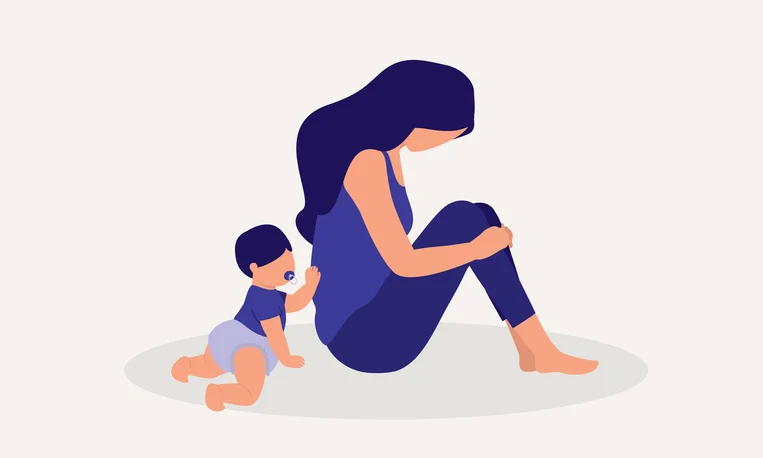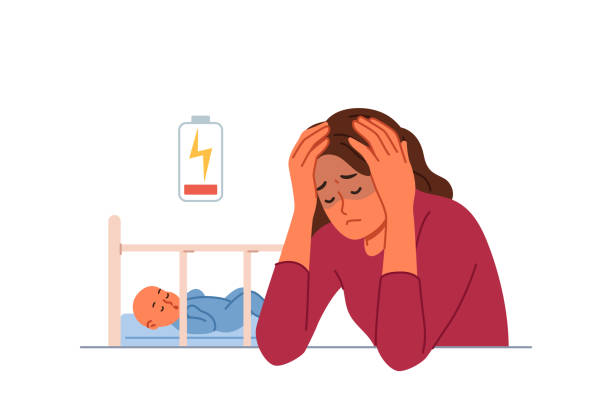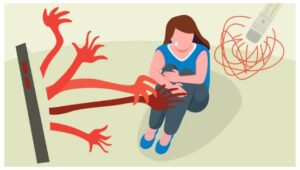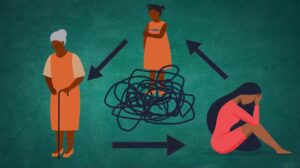When a baby is born, a mother is born too, but rarely does the world pause to truly see her. The very first year right after labor, tough and uncertain days follow, all of which are new to the mother just like her newborn. Yet, she must gear up to care for her child which can demand multiple insomniac nights depending upon the cry and feeding schedules of the child. This is intense in every woman’s motherhood journey as this is probably the only phase wherein she will face raw emotions and be extremely vulnerable. Best mental health services are available for new mothers struggling with their mental health.
Motherhood is way more than an alteration of your routine and daily mundane. It reshapes your body, your identity, your relationships, your dreams, and the emotional foundation you once knew. After decades of working alongside new mothers, I can say with certainty: what new mothers need is not just celebration. They need deep care for the soul as much as for the body. There are also online therapy options offered by trauma informed therapists that you can opt for to seek help from where you are.
Why the First Year of Motherhood is So Emotionally Vulnerable
- Identity Breaks Open and Rebuilds
Motherhood does not simply “add” something to your life. It transforms who you are. There is a paradigm shift in your personality, you are not the same woman you used to be before you gave birth. This is a bittersweet journey though as you are going to feel wonderful and shattered at the same time.
This phase redefines the way you view yourself physically and psychologically to a great extent. Many new mothers quietly grieve their “old self” while loving their child with their whole heart. This duality is normal, though it can feel confusing and isolating.
- Emotional Storms Without Warning
Hormones after birth are anything but steady. Estrogen, progesterone, cortisol, and oxytocin surge and dip unpredictably. Grief, rage, tenderness, joy, fear, they can all arrive in the same afternoon, leaving you wondering if you’re “doing it wrong.”
You are not. These emotional waves are not failures. They are part of the immense internal reorganization your body and soul are navigating.
- A Loneliness Few Expect
New motherhood is often painted with pastel colors and smiling photos. But the reality is that many new mothers feel startlingly alone, even when surrounded by loved ones.The world celebrates the baby but often forgets the woman who gave birth.
Friends might expect only gratitude. Partners might not grasp the invisible emotional load being carried. And many mothers quietly wonder if they are the only ones feeling so isolated.
- Crushing Hyper-Responsibility and Guilt
Many mothers feel an unbearable sense of responsibility for their baby’s every emotion, every need, every breath. When the stakes feel like survival, every decision can feel terrifying and every misstep can feel like proof of failure.
The guilt seeps into places no one talks about. “Am I doing enough? Am I bonding right? Have I already messed this up?” This silent pressure can wear down even the strongest spirit.
- Old Wounds Stir to the Surface
Motherhood often awakens parts of your own childhood you thought were long tucked away. The way you were loved, held, or hurt can come rushing back with a force you didn’t expect.
This is not regression. It is your inner world asking for healing. Painful, yes but it also offers a profound chance to break intergenerational patterns with compassion. Best mental health services can help resolve these internal battles fought alone by mothers.
How to Protect Your Mental Health in the First Year
- Care for Yourself Like You Would for a Newborn
Imagine treating yourself with the same tenderness you give your baby. You would never tell a newborn to “push through” or “be grateful.” You would hold them, soothe them, and forgive every cry.
You deserve that same patience and softness. Rest when you can. Nourish your emotional life. Let yourself be as fragile and fierce as you need to be.
- Build Gentle Emotional Checkpoints
Rather than waiting for a crisis, make space once a week to check in with yourself. It is important to ask, What feelings have I been ignoring? What parts of me need comfort? What losses need to be honored? A few minutes of honest reflection can be a lifeline.
- Let Ambivalence Be Welcome
You can love your baby more than life itself and still mourn your old freedoms. You can feel overwhelming joy and overwhelming grief without it meaning anything is wrong. Ambivalence doesn’t mean you are failing. It means you are living this transformation with your whole heart.
- Find One Person Who Truly Sees You
You don’t need a crowd. You need one witness, someone who sees not just “the mother” but the full woman behind the role. It could be a therapist, a trusted friend, or a mentor. Someone who will sit with you in the hard moments without trying to “fix” you. Being seen can make the difference between surviving and feeling alive.
- Let “Good Enough” Be More Than Enough
Perfect motherhood does not exist. What children need is not perfection, but attunement, love, and repair. Being “good enough” is not settling. It is the deepest form of devotion. Best mental health services help pave a path towards gaining these insights. It is also important to note that there are also online therapy options offered by trauma informed therapists that you can opt for to seek help from where you are.
FAQ: Mental health challenges faced by mothers post birth
Is the feeling of loss common among mothers?
Yes, there is a huge shift in the way you view yourself now. Hence, it is absolutely normal to feel lost and often disoriented because this is new to you too at the end of the day. This does not imply failure in any manner, rather only transition.
What if my anger grows contagious towards my newborn or husband?
Expression of rage is a natural human reaction to exhaustion, the new found identity and hormones will reinforce this. However, this should not be equated to the amount of care and love you have for your family.
How do I differentiate between ‘postpartum depression’ and ‘normal baby blues’?
You must seek help to understand this better as there are different demarcations and detailed diagnostic criteria for both. If emotions like sadness persist for more than two weeks in the form of profound hopelessness or just not feeling good, and if this significantly causes psychological distress and interferes with your daily life, do not hesitate to seek help at any given point. Both deserve nurturance and love nonetheless.
How do I protect my mental health if I don’t have family support? Build a chosen family. Friends, online communities, support groups, and trauma-informed therapists can become lifelines.
Why do I miss my old life even though I love my baby? Because grief and love can exist side by side. This is a part of you and missing your past free life does not take away the love you have towards your infant in any way.
How do I manage overwhelming guilt as a new mother? Speak it out loud. Challenge impossible standards. Guilt thrives in silence; it softens when it meets compassion.
Can seeking therapy help during your postpartum depression?
Yes, it can help a ton. This is because therapy provides a space to explore difficult emotions that arise during this phase which may not hold meaningful interpretations or understanding about why these emotions are being felt and that too in such great intensity. Hence, therapy facilitates grief, rage, hope and also being able to heal alongside without anyone judging you.
What if I’m too tired to take care of myself?
Take it one day at a time, think small. One deep breath, one kind word to yourself, and one honest tear. Tiny acts of care matter deeply.
Is it selfish to prioritize my mental health?
No. Your mental health is the soil your child grows in. Caring for yourself is caring for them.
Why do I sometimes feel like a bad mother?
This is simply because of care. Fear and doubt are normally experienced and do not prove you as a failure.
How do I reconnect with my partner to resume?
Small, consistent emotional check-ins build bridges. Five minutes of real connection matter more than grand gestures.
Why do I feel isolated even when I’m “supposed” to feel happy? Because motherhood is often lonely, and the pressure to feel only gratitude ignores the real complexity of postpartum life.
How do I deal with my intrusive thoughts about any danger to my newborn?
Intrusive thoughts are very common in the journey of motherhood and this is due to the anxiety you carry navigating this journey altogether delicately. They do not mean you will act on them. If they feel overwhelmed, seek support.
When should I seek therapy?
You can opt to seek therapy anytime you wish to. If you are feeling burdened or simply overwhelmed in this whole process, you deserve support.
How can Coach For Mind therapists support me?
All our therapists offer trauma-informed and deeply compassionate spaces where your grief, hope, rage, and love are all welcome. We respect where you come from and we are with you on this journey of yours.
You are not broken. You are crossing one of life’s most sacred and demanding thresholds.
You deserve tenderness. You deserve support. You deserve to be mothered, too.If you are seeking trauma therapy, emotional trauma therapy, or a trauma therapist in India who understands the profound emotional journey of motherhood, we are here for you. Do not hesitate to seek help, there are also online therapy options offered by trauma informed therapists that you can opt for to seek help from where you are.
Why CoachForMind?
- We don’t merely address symptoms.
- We examine what’s really happening beneath the surface, past pain, trauma, or recurring patterns. You’ll collaborate with trained psychologists. Everyone here possesses the required qualifications and experience. You’ll engage with someone who listens and comprehends profoundly.
- Therapy is designed specifically for you. We don’t adhere to a rigid plan. We tailor the process based on your needs and current situation.
- We utilize various forms of therapy: Psychodynamic, IFS (Internal Family Systems), Somatic (body-oriented work), CBT and DBT and Narrative Therapy.
- It’s an environment to develop at your own rhythm.
You don’t need to feel “prepared. ” Just come as you are. We’ll navigate this journey together.
For more information, please visit our website or contact us directly at coachformind@gmail.com








